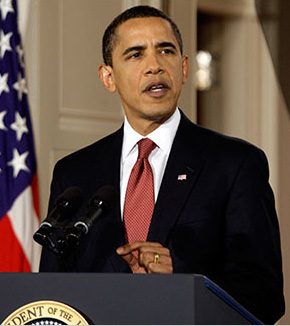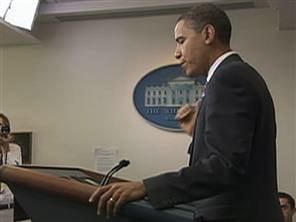Americans travel less than almost any other people on Earth.
Most of the hip-hop ever made was created in America, its birthplace.
What are the implications of these two facts for touring, and the benefits artists can derive from going abroad?
Educate and excite, inform and infuriate.
August 7th, 2012 — Art, Black Music, Business, Culture, Entertainment, Hip-Hop, Language, Music, Pop Culture, Travel, Work, Youth
Americans travel less than almost any other people on Earth.
Most of the hip-hop ever made was created in America, its birthplace.
What are the implications of these two facts for touring, and the benefits artists can derive from going abroad?
August 2nd, 2012 — Advertising, Art, Black Music, Business, Culture, Entertainment, Hip-Hop, History, Language, Money, Music, Pop Culture, Youth
April 30th, 2010 — Aviation, Black Music, Controversy, Culture, Education, Entertainment, Film, Government, Hip-Hop, History, Language, Law, Magazines, Media, Military, Music, NONFICTION, Politics, Pop Culture, Race, Religion, Technology, Terrorism
Palestinian hip-hop trio DAM, above, wield the power of hip-hop as a force against the Israeli occupation of their homeland—the world’s longest—and their minds as well.
Formed in 1998 by brothers Suhell and Tamer Nafar, center and right (friend Mahmoud Jreri, left, was added later), they initially sought to make party records that would earn them cool points with peers and the ladies. Then it was still “just for fun,” says Tamer. They completed a six-track EP titled Stop Selling Drugs, the first time any Palestinian had ever recorded rap music.
What politicized them, however, was the Second Intifada of 2000…and the music of 2Pac. As Tamer poignantly told me, for my March 2008 piece in VIBE, “Straight Outta Palestine,”
April 2nd, 2010 — Culture, Entertainment, Language, Music, NONFICTION, Pop Culture, Radio, Travel
 New York-based vocalists Jaana Kantola and Paula Jaakkola, above, record as Kaiku (“echo”), mostly singing in Finnish, the vowel-rich tongue of their icy, Northern European homeland, right. (Fully 25% of Finland rests within the Arctic Circle. In winter, at the country’s most boreal point, the cold season lasts seven months, void of sunrises for 51 days.)
New York-based vocalists Jaana Kantola and Paula Jaakkola, above, record as Kaiku (“echo”), mostly singing in Finnish, the vowel-rich tongue of their icy, Northern European homeland, right. (Fully 25% of Finland rests within the Arctic Circle. In winter, at the country’s most boreal point, the cold season lasts seven months, void of sunrises for 51 days.)
But if your stereotype of Scandinavia is frigid weather; clean, efficient municipalities; socialized medicine; and people whose dispositions are as nippy as the climate, Kaiku’s new, self-produced album, Usva, may send you for a delightfully ecstatic loop.
 Usva—the word means “mist,” evoking the hazy confusion of unrequited love—layers lush soundscapes that more evoke a warm Mediterranean sun than a distant, gray, Nordic light.
Usva—the word means “mist,” evoking the hazy confusion of unrequited love—layers lush soundscapes that more evoke a warm Mediterranean sun than a distant, gray, Nordic light.
Artfully blending accordion, cello, piano, and bass on compositions like “Stay Your Hand,” “Illusions,” and the title track, Jaakola and Kantola, above, consider their ardent, “organic sound,” not some Culture Day demo but, “a mixture of rhythmic world music and traditional Finnish songs.” “Sure we come from Finland,” Kantola notes, “but our music is more like via Finland.”
Jaana Kantola and Paula Jaakkola are the guests today on my WBAI-NY / 99.5 FM radio show, NONFICTION, this afternoon, Friday, April 2, at 2 pm ET.
Further, if you’re in New York City next week, Kaiku will be playing, Wednesday, April 7th, 8 pm, at Fat Baby (112 Rivington Street; corner of Essex).
You can hear these thoughtful artists’ ideas by tuning in at 2 pm. If you’re outside of the New York tri-state, check out our live stream on the web. If you miss the live show, dig into our archives for up to 90 days after broadcast.
February 24th, 2010 — Black Music, Entertainment, Hip-Hop, Humor, Language, Media, Pop Culture, TV
O.K.: In fact, he wasn’t actually all that forthcoming, which should be expected at this point, right?
But, as someone who’s interviewed Jay-Z on TV before, what’s extremely cool to me about his humorous chat with the BBC’s Jonathan Ross—of Friday Night with… fame—is watching Jigga’s charm on open display.
As Mr. Carter parries with the chummy Brit, endlessly deferring Ross’s faux-friendly entreaties, his timing is impeccable, with each pause and sideways glance as perfectly placed as they are in his raps. Indeed, it’s a whole performance, yet a good part of it is silent.
But what most dawns on this writer as I watch the clip is that Jay didn’t merely become “the biggest rapper on the planet,” as the show’s web site notes, by clever alliterations, a clothing line, or, again, marrying one of music’s biggest stars.
In part, he did it by being a nice guy. Which sounds like a cliché, until you think of the fact that, in a field whose artists are lampooned for their ice grills, he smiles more than almost anybody. Now, laught at that.
February 22nd, 2010 — Controversy, Humor, Language, Media, Pop Culture, Satire, Sex, Sports, TV
Last week on MEDIA ASSASSIN, I did a brief analysis of Tiger Woods’ press conference apology. Though, admittedly, Woods’ recitation of his written statement was wooden and lacked warmth, I judged that, in his words, he took appropriate responsibility for what he’d done, and spoke to the need for personal change.
Well, boy was I wrong! As this piece of video from the event reveals, above, there was more to Tiger’s talk than meets the eye or ear. Wow. How did he fool us all again?
[via brokencool.com]
February 19th, 2010 — Controversy, Design, Gender, Language, Media, Money, Pop Culture, Sports, Technology, TV
You don’t have to go very far into reading the text of Tiger Woods’ apologetic press conference statement, made earlier today, to realize that either he, his handlers, or both, knew the word the disgraced athlete needed to say most, in order to win back public trust, was “I.”
However, it’s only with a textual analyisis of the statement, such as the one I put together, above, courtesy of IBM’s Many Eyes software, that it becomes clear how much Woods was relying on conveying a repentant, personal account.
He used the pronoun “I” 105 times in the short, 13 1/2-minute statement, or an average of about once ever eight seconds. Looking at his most common subjective couplet, “I have,” below—said 16 times—it appears that Woods was attempting to forge an empathetic bond with those listening to his statement by affirming the words they had probably said about him in his absence: You bitterly disappointed us…you brought this on yourself.
Or check out Woods second-most frequently-used couplet, “I am,” below, where he talks about his present state.
Finally, study Tiger’s mentions of his wife’s name, Elin, and the complimentary contexts within which Woods praised her.
Verbally, at least, it seems like Woods knew what he had to say about what he did, how he feels about it, and how he feels about his wife. These were the most important statements for him to make, it can be argued. (He certainly seemed to think so: He only mentioned “golf” twice.)
Though you heard it, and read it in the statement, the Many Eyes software, with this straightforward formatting, creates a slightly better sense of how Woods’ words were organized, and to what end. Indeed, IBM calls Many Eyes “a bet on the power of human visual intelligence to find patterns.”
Funny: That’s what Woods has got to apply, now, towards his own transgressive behavior and missteps.
January 20th, 2010 — Controversy, Culture, Entertainment, Film, Language, Media, Pop Culture
It’s difficult to say how much I remain in awe of director Martin Scorsese’s violent, 1990 opus, GoodFellas, above. Meanwhile, on the internet, my use of Wikipedia is second only to the attention I give Google.
So, imagine my surprise when, looking up GoodFellas on Wikipedia, I came across a detail that blew up my appreciation of both.
It was a single sentence, the fourth paragraph in the Wiki page that chronicles the film’s rich history:
“The word “fuck” is used in the film approximately 300 times,[2] ninth most in film.”
Utterly blew my mind. Not the 300 times part. The “ninth most in film” part. My first, immediate thought was, “Somebody counted that?”
Turns out someone did, on the Wikipedia “List of films that most frequently use the word ‘fuck.'” I won’t even spoil it for you, except to say that 1) 2005’s fecal-tongued The Aristocrats came in #183 on the 187-film list, and that 2) Spike Lee, for all his sanctimony, has a place of honor on it. As they say, seein’ is believin’. Check it out.
July 27th, 2009 — Language, Politics, Race

When Barack Obama spoke last week, above, on the arrest of Harvard professor Henry Louis “Skip” Gates Jr., the president observed that “the Cambridge Police acted stupidly.”
That quote quickly became the one most widely reproduced, as I knew it would, eclipsing the visibility of almost anything he’d said in his preceding press conference, ostensibly about health care reform.
 I remember the exact moment I heard Obama utter those words. It was as though someone had played a horrible chord. While the statement was the closest he apparently went to expressing any sort of a feeling about the Gates incident, I immediately knew those words wouldn’t go down well at the police station. As most certainly realize by now, they didn’t, and Obama had to subsequently retract them. “I could’ve calibrated those words differently,” he said, right.
I remember the exact moment I heard Obama utter those words. It was as though someone had played a horrible chord. While the statement was the closest he apparently went to expressing any sort of a feeling about the Gates incident, I immediately knew those words wouldn’t go down well at the police station. As most certainly realize by now, they didn’t, and Obama had to subsequently retract them. “I could’ve calibrated those words differently,” he said, right.
Two aspects of this, however, are absolutely fascinating to me:
July 10th, 2009 — Books, Internet, Language, NONFICTION

Would you believe anything he told you about the car you were buying from him, about your future with the company, or about you?
Probably not. But why? And, even more, when you speak, do people see you the same way? That is, do you, even unintentionally, convey that you are not to be liked or believed?
In his new book, Trust Me: Four Steps to Authenticity and Charisma, Nick Morgan, PhD., a top communication and speech coach, author, and blogger, delivers the critical knowledge on how “to be an effective speaker by presenting an image of authenticity and respect for [an] audience, whether in a group presentation or a one-on-one conversation.”
Undergirding his approach is
the fact that when words and body language are in conflict, body language wins every time. This isn’t easy to overcome, because normally body language is immediate, while the words lag slightly behind, and even a momentary conflict is perceptible to the audience. The key to success is to train your body language to unconsciously align with your message.
Nick Morgan is a guest today on my WBAI-NY / 99.5 FM radio show, NONFICTION, this afternoon, Friday, July 10, at 2 pm ET.
 Then, we’ll announce the three winners of O’Reilly Media founder Tim O’Reilly and Sarah Milstein’s new volume, The Twitter Book, right. Sarah was our guest last week on NONFICTION, and an amazing, informed—and generous!—guest.
Then, we’ll announce the three winners of O’Reilly Media founder Tim O’Reilly and Sarah Milstein’s new volume, The Twitter Book, right. Sarah was our guest last week on NONFICTION, and an amazing, informed—and generous!—guest.
Then, finally, our long-delayed conversation with Ellen Lupton, director of the Graphic Design MFA program at Maryland Institute College of Art (MICA) in Baltimore, and author of the new book, Indie Publishing: How to Design and Produce Your Own Book, a step-by-step guide to being your own publisher. “Once referred to derisively as ‘vanity publishing,'” she says, “self-published books are finally taking their place alongside more accepted indie categories such as music, film, and theater.”
You can hear Nick Morgan’s and Ellen Lupton’s ideas by tuning in at 2 pm. If you’re outside of the New York tri-state, check out our stream on the web. If you miss the live show, dig into our archives for up to 90 days after broadcast.